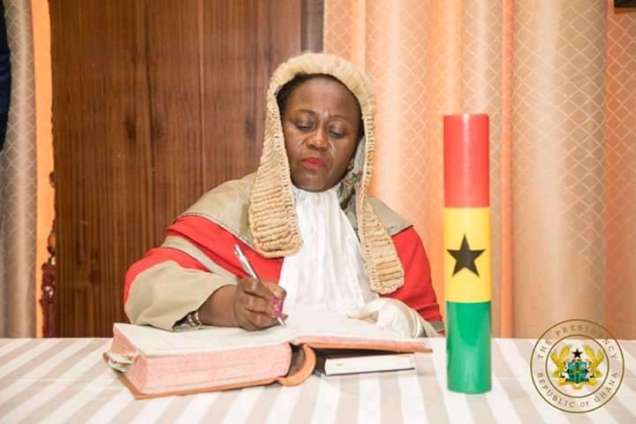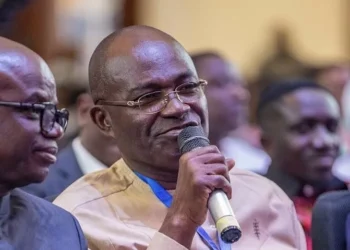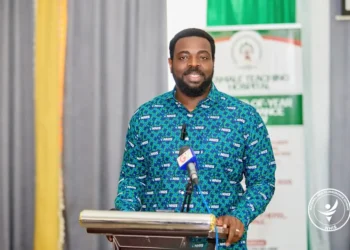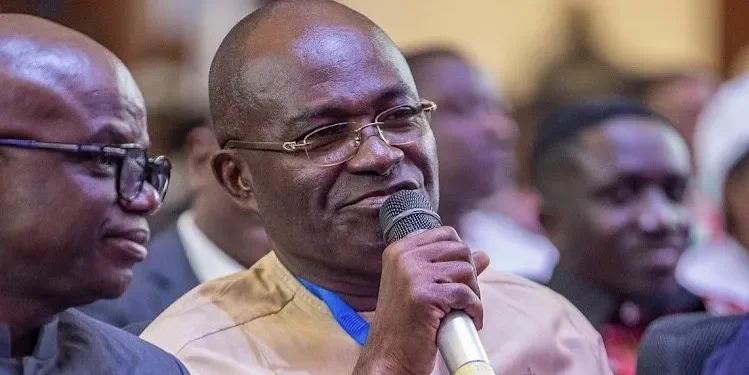The recent Chief Justice removal saga continues to stir heated public debate, with Patrick Kwarteng Sarpong, a Fellow at the Institute of Economic Research and Public Policy (IERPP), criticizing former Chief Justice Sophia Akuffo for what he describes as a belated and ineffective response to the political crisis surrounding the judiciary.
Sarpong expressed disappointment over the recent interviews granted by Sophia Akuffo following the controversial ouster of Chief Justice Gertrude Araba Esaaba Sackey Torkornoo.
According to him, while he has always been strongly opposed to the removal of Justice Torkornoo — a position he has voiced through several public statements and articles — he finds Akuffo’s sudden public commentary untimely and lacking substance.
He questioned the relevance of these interviews now that the process has been completed, arguing that Sophia Akuffo’s silence during the critical stages of the removal rendered her present interventions meaningless.
“I ask the questions: So what should we do with these interviews after the fact? What are these interviews seeking to do when she kept quiet all this while for John Mahama to remove Torkornoo?”
Patrick Kwarteng Sarpong
Meanwhile, Sophia Akuffo, who currently serves as a member of the Council of State, openly condemned the removal of Justice Torkornoo, describing the process as unjust and a troubling precedent for Ghana’s judiciary.
She labeled the ordeal as an unfortunate and dangerous chapter in the country’s democratic history.
According to Akuffo, Justice Torkornoo was denied a fair and transparent process.

She lamented that while it was not a trial in the traditional sense, the proceedings were conducted as though it were a high-stakes treason case, casting a long shadow over the integrity of the judiciary.
Sarpong, however, accused Akuffo of hypocrisy, pointing out that she was part of the same Council of State that voted on whether there was a prima facie case to proceed with the charges against the Chief Justice.
He criticized her decision to abstain from voting rather than taking a firm stand against what he described as “nonsensical charges.”
Akuffo’s Principles Questioned Amid Chief Justice Saga
Patrick Sarpong further challenged Akuffo’s moral standing, asking why she chose silence during the early stages of the removal process if she truly believed the proceedings were unjust. He argued that true principle requires timely action, not retrospective commentary.
He drew comparisons to her outspoken opposition during the Domestic Debt Exchange Program (DDEP), when she publicly criticized the very government that had elevated her to the position of Chief Justice.

Sarpong questioned why she was willing to take such a bold stand then but failed to act with the same vigor during what he described as a deliberate political attack on the judiciary.
“Do we fetch water in the rain after it has stopped? Do we go to the riverside to fetch water with a sieve? She should stop disturbing our ears with these interviews because they will make no difference now.
“Why is she still on the Council of State team when these people have clearly supervised a deliberate act of judicial coup d’état that has destroyed the third arm of government for good? She should resign so we believe that her principles are still with her.”
Patrick Kwarteng Sarpong
According to Sarpong, staying on the Council while criticizing its actions sends mixed signals to the public about her true commitment to justice and accountability.
Sarpong did not hold back in his criticism of former President John Dramani Mahama, under whose leadership the Chief Justice’s removal took place.
He described the event as a “cardinal sin” of the Mahama regime, one that history and posterity will never forgive.
He accused Mahama and his allies of conspiring to destroy the independence of the judiciary for political gain.

According to Sarpong, this act has left deep scars on Ghana’s governance system, eroding public trust in the judiciary and damaging the balance of power among the three arms of government.
Sarpong stressed that Sophia Akuffo’s post-removal interviews do little to address the root problem.
He insisted that if she truly wishes to demonstrate integrity and uphold the values of justice, she must take decisive action, beginning with her resignation from the Council of State.
Anything less, he argued, would amount to empty words and a betrayal of the very principles she claims to defend.
“The removal of Chief Justice Gertrude Araba Esaaba Sackey Torkornoo,” Sarpong said, “is a tragedy for Ghana’s democracy and a wound that will take generations to heal.”
As such, he called on all Ghanaians to reflect on the implications of this act and demand accountability from those who orchestrated what he views as an assault on the judiciary.
READ ALSO: Remittance Scandal Rocks Ghana’s Fintech Scene as BoG Targets Flutterwave, Celulant & Halges






















